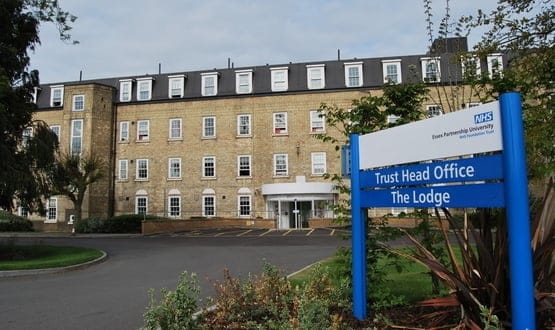HSCN connections available this summer
- 15 February 2016

NHS and social care organisations should be able to tender for a Health and Social Care Network accredited connection by this summer.
The new network will replace N3, for which the national contract is due to expire in March 2017.
Patrick Clark, the Health and Social Care Information Centre’s head of transformation for the HSCN programme, said at a recent HSCIC open day that HSCN will be a “network of networks”: moving away from one big monolithic contract, towards a marketplace of providers and multiple smaller contracts.
“The network comes about when suppliers establish HSCN-compliant services adhering to a set of common standards. When you have suppliers offering them and consumers able to buy and operate them, HSCN exists,” Clark said.
He did not envisage network providers having to do a lot of work to get accredited for the HSCN market and predicted that organisations should be able to tender for an HSCN- certified connection by this summer.
N3 is a private national broadband network, provided by BT, that allows NHS organisations to communicate securely and access national applications such as the NHS Spine.
The HSCN will be based on a set of standards that network providers need to adhere to and will support greater interoperability between health and social care organisations as a much higher number of providers will have access.
The standards should be ready for consultation by the summer and, following consultation with suppliers and consumers, issued formally towards the end of the year.
“The requirements for information access and sharing have changed, so it makes sense to look at the underlying network to see how we can support a more modern health and social care environment,” Clark said.
“(HSCN) is quite a big step change, it’s absolutely not a ‘like for like’ replacement.”
Users will have a variety of ways to buy an HSCN connection. If they want to purchase it themselves, they can go to public tender or use an existing framework. Others may ask the HSCIC to buy it for them and this will be done via collaborative contracts with the best value supplier in their region.
Clark also encouraged organisations to ask any current internet providers about their plans for getting HSCN-accredited as they could potentially renegotiate their contracts.
Clark predicted up to 25 suppliers would be accredited, with six key providers providing services to the vast majority of the country.
“This is a big marketplace, we fully expect industry to show incredible interest and suppliers are already preparing for what they need to do,” he said.
The HSCIC is also hoping to greatly simplify the process organisations have to go through before they can get connected to a certified network. They want to replace N3's IG Statement of Compliance and create a ‘code of connection’ for the HSCN.
Clark acknowledged that in the short term there will be a need for some central capability; such as the infrastructure to provide national connectivity between networks and some security monitoring.
“The level at which we need to do these things may change over time. Our desire is to minimise what we need to do and pay for in the centre, as long as that enables everyone out in the field to do what they need to do,” he explained.
There also needs to be a managed transition from one service model to another. The HSCIC does not want a “big bang transition”, but rather to run down existing services while “ramping up HSCN capability”.
The original contract for N3 was due to end in April 2014 and went into a three-year termination period to provide time for new services to be provisioned.
Plans to create an integrated network to replace N3 were approved by health secretary Jeremy Hunt late last year, which allowed the project to move out of the ‘red’ rating it had been issued by the government’s Major Projects Authority.



